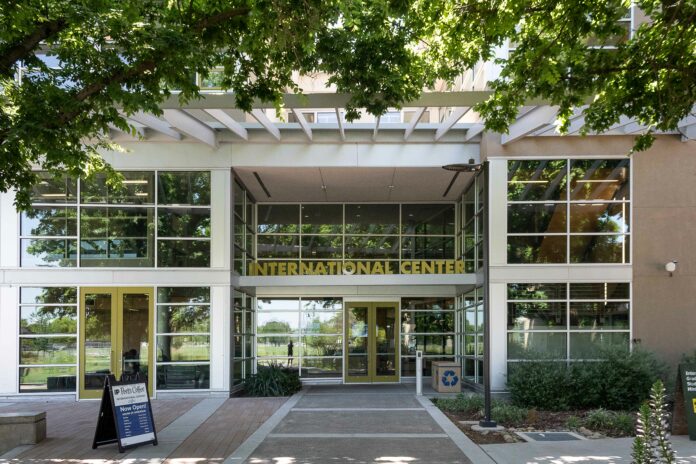Antarctica, Lebanon, Tanzania among new additions to Global Affairs, Global Learning Hub
Global Affairs and the Global Learning Hub — formerly the Study Abroad Office — have introduced an extensive array of study abroad and internship programs led by UC Davis faculty for the 2019-20 school year. Antarctica, Lebanon and Tanzania are three notable destinations added to UC Davis’ overarching global reach.
“These three programs provide opportunities in parts of the world that are underrepresented in study abroad,” said Zachary Frieders, the executive director of the Global Learning Hub, via email. “They each tackle subjects that are of global importance and resonate with UC Davis.”
Each year, 1,300 students are granted the opportunity to study abroad in over 30 countries. Now, with the addition of a program in Antarctica, UC Davis has established programs on all seven continents.
“We are very proud of that accomplishment,” Frieders said. “But it’s not just about having a presence on every continent. It’s about asking the question: Do we provide students opportunities in the very best location for their area of study?”
Last year, UC Davis adopted a set of global learning outcomes affirming what the university anticipates students will learn from participating in such programs. The three key elements of these outcomes include “building global self- and systems-awareness” as well as “embracing linguistic and cultural diversity” and “acting globally.”
“We want our programs to engage students in hands-on learning on issues of global importance,” Frieders said. “These sites highlight challenges that are critically important at those locations, but they are also concerns that affect people around the world.”
With the “Ecology in Antarctica” program, 15 students will board a purpose-built polar expedition vessel and embark for the Antarctic Peninsula.
“We stay on the boat overnight,” said Laci Gerhart Barley, an assistant professor of evolution and ecology. “The day trips will have a variety of excursions where you can go out on a small boat called a zodiac and either go whale-watching, or look for penguin rookeries, maybe do some surveys of icebergs or hike [on the land of the continent]. We’ll be able to see some of the historical areas and there is a working research centers.”
During the university’s winter break, Dec. 16 to Dec. 30, 2020, students will delve into the ecology, biology and geology of Antarctica while understanding the history of the region integrated with human effects and interactions.
“In the seminar and on the trip, we will be considering the geopolitical environment, the social and historical history and how those components have guided how Antartica exists today, even in a legal context,” Gerhart-Barley said.
Prior to visiting Antarctica, students will be required to take an online course, taught by specialists from various institutions, and attend on-campus meetings, according to the Global Learning Hub website. Specifically, students will be expected to complete readings, watch videos, write responses and answer some discussion questions.
“What students will be learning in class is all the ways Antarctica is weird,” Gerhard-Barley said. “It’s weird ecologically, it’s weird geographically, it’s weird politically [and] it’s weird socially. It is fundamentally different than most land masses on Earth. We’ll spend a lot of time talking about why that is, and how those components of unusual nature interact to make it a particularly complex place.”
“Science and Society in the Middle East” will be taught at the American University of Beirut in Lebanon. From June 22, 2020 to July 21, 2020, students will grapple with contemporary environmental challenges including “saltwater intrusion, waste mismanagement and deteriorating air quality,” according to the Global Learning Hub website.
Taught by Majdi Abou Najm, an assistant professor of soil biophysics, students will also learn about community-based conservation efforts, study groundwater systems and delve into rain-fed agriculture and winemaking.
From July 1, 2020 to Aug. 1, 2020, 30 students will be traveling to the College of African Wildlife Management, commonly known as Mweka, aside the southern slopes of Mount Kilimanjaro in Tanzania to study “Tanzania — Culture, Wildlife and Activism.” Later, they will be trekking to the Maasai Village.
The program will be taught by Assistant Professor of Literature and Culture of the Black Diaspora Danielle Mollel.
According to Mollel’s message to students and parents on the Global Learning Hub, she is “excited to combine [her] experience providing life-changing trips for travelers with her experience and knowledge as a professor and [her] commitment to social and environmental justice in this summer course.”
Through cultural immersion and field lectures, students will learn first-hand about wildlife behavior, conservation, political economy, tourism, human rights and indigeneity, according to the Global Learning Hub website.
“We will continue to grow our global internship programs,” Frieders said. “Students can search from among 300 different global learning opportunities on our search tool.”
In addition to these aforementioned programs, UC Davis has launched opportunities such as studying human rights in Chile and Peru, water management in Mexico City, design in Japan, personality psychology in Germany and cell biology and behavior in the Netherlands, according to the Global Learning Hub website.
“One goal we have at UC Davis is to prepare our students [to] tackle global challenges.” Frieders said. “It is useful to think about frameworks in that regard. Students can study topics on campus so it’s important that we understand what added skills, capacities and understanding we provide students through our programs.”
Written by: Aarya Gupta — campus@theaggie.org




